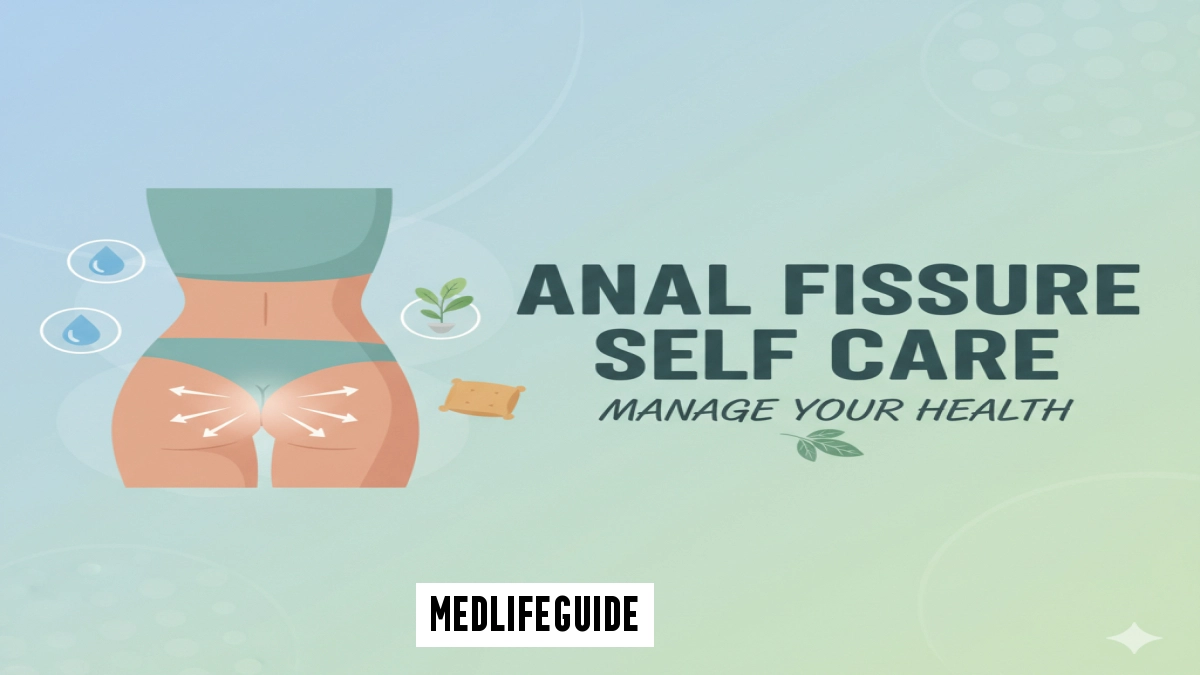Anal fissures, small tears in the lining of the anal canal, can cause significant discomfort and distress. While medical intervention is sometimes necessary, many individuals find substantial relief through dedicated self-care practices. This article delves deeply into effective self-care strategies, blending expert knowledge, practical wisdom, and nuanced insights to empower you on your journey toward healing and comfort.
Understanding the Condition: Why Self-Care Matters
Before exploring self-care techniques, it’s essential to grasp the nature of the condition. Anal fissures often result from trauma to the anal mucosa, commonly due to constipation, straining during bowel movements, or chronic diarrhea. The pain and bleeding associated with fissures can create a vicious cycle, where fear of pain leads to withholding stool, worsening constipation, and further injury.
Self-care is not merely about symptom management; it’s about breaking this cycle by addressing underlying causes and promoting an environment conducive to healing. This holistic approach aligns with the latest health paradigms emphasizing patient empowerment and proactive management.
Core Principles of Effective Self-Care
1. Prioritize Gentle Hygiene
Maintaining cleanliness without irritation is paramount. Overzealous wiping or harsh soaps can exacerbate discomfort and delay healing.
- Use warm water to gently cleanse the area after bowel movements.
- Avoid scented or alcohol-based wipes; opt for hypoallergenic, fragrance-free options.
- Pat dry with a soft cloth instead of rubbing.
Expert Insight: Incorporating sitz baths—soaking the anal area in warm water for 10-15 minutes several times daily—can soothe pain and increase blood flow, accelerating tissue repair.
2. Optimize Bowel Habits
Straining is a primary culprit in fissure formation and persistence. Modifying bowel habits can significantly reduce trauma.
- Respond promptly to the urge to defecate; delaying can harden stool.
- Avoid prolonged sitting on the toilet, which increases pressure.
- Consider positioning aids like a footstool to mimic a natural squatting posture, easing stool passage.
3. Dietary Adjustments for Stool Softening
Diet plays a pivotal role in stool consistency and frequency.
- Increase soluble fiber intake through foods like oats, bananas, and apples.
- Stay well-hydrated; aim for at least 8 glasses of water daily.
- Limit irritants such as caffeine, alcohol, and spicy foods that may aggravate symptoms.
Data Interpretation: Studies indicate that a fiber intake of 25-30 grams daily correlates with reduced incidence of fissure recurrence, underscoring the importance of dietary management.
4. Incorporate Physical Activity
Regular movement stimulates intestinal motility, reducing constipation risk.
- Engage in moderate exercise such as walking or yoga for at least 30 minutes daily.
- Avoid activities that increase intra-abdominal pressure excessively.
Advanced Self-Care Techniques
Topical Applications
While over-the-counter creams can provide symptomatic relief, understanding their appropriate use is crucial.
- Use barrier creams containing zinc oxide to protect irritated skin.
- Consult healthcare providers before applying medicated ointments to ensure suitability.
Stress Management
Chronic stress can influence gastrointestinal function and pain perception.
- Practice mindfulness meditation or deep-breathing exercises.
- Consider cognitive-behavioral strategies to manage anxiety related to symptoms.
When to Seek Professional Guidance
Self-care is foundational but not always sufficient. Warning signs necessitating medical evaluation include:
- Persistent bleeding beyond two weeks.
- Severe pain unrelieved by home measures.
- Signs of infection such as fever or swelling.
Integrating professional advice with self-care ensures a comprehensive approach, optimizing outcomes.
Common Misconceptions and Clarifications
- Myth: Only surgical intervention can heal fissures.
Fact: Many fissures heal with conservative self-care and lifestyle changes. - Myth: Fiber supplements always cause bloating and should be avoided.
Fact: Gradual introduction of fiber minimizes side effects and supports healing.
Actionable Takeaways
- Establish a consistent hygiene routine using gentle cleansing and sitz baths.
- Modify diet to include fiber-rich foods and maintain hydration.
- Adjust bowel habits to avoid straining and prolonged toilet time.
- Incorporate daily physical activity to promote regular bowel movements.
- Manage stress through relaxation techniques.
- Monitor symptoms closely and seek medical advice when necessary.
Conclusion
Navigating the discomfort of anal fissures requires a thoughtful, informed approach that balances practical self-care with awareness of when to seek professional help. By embracing gentle hygiene, dietary mindfulness, optimized bowel habits, and stress management, individuals can foster healing and reclaim comfort. This comprehensive strategy not only addresses symptoms but also empowers individuals with the knowledge and tools to break the cycle of pain and promote lasting well-being.
